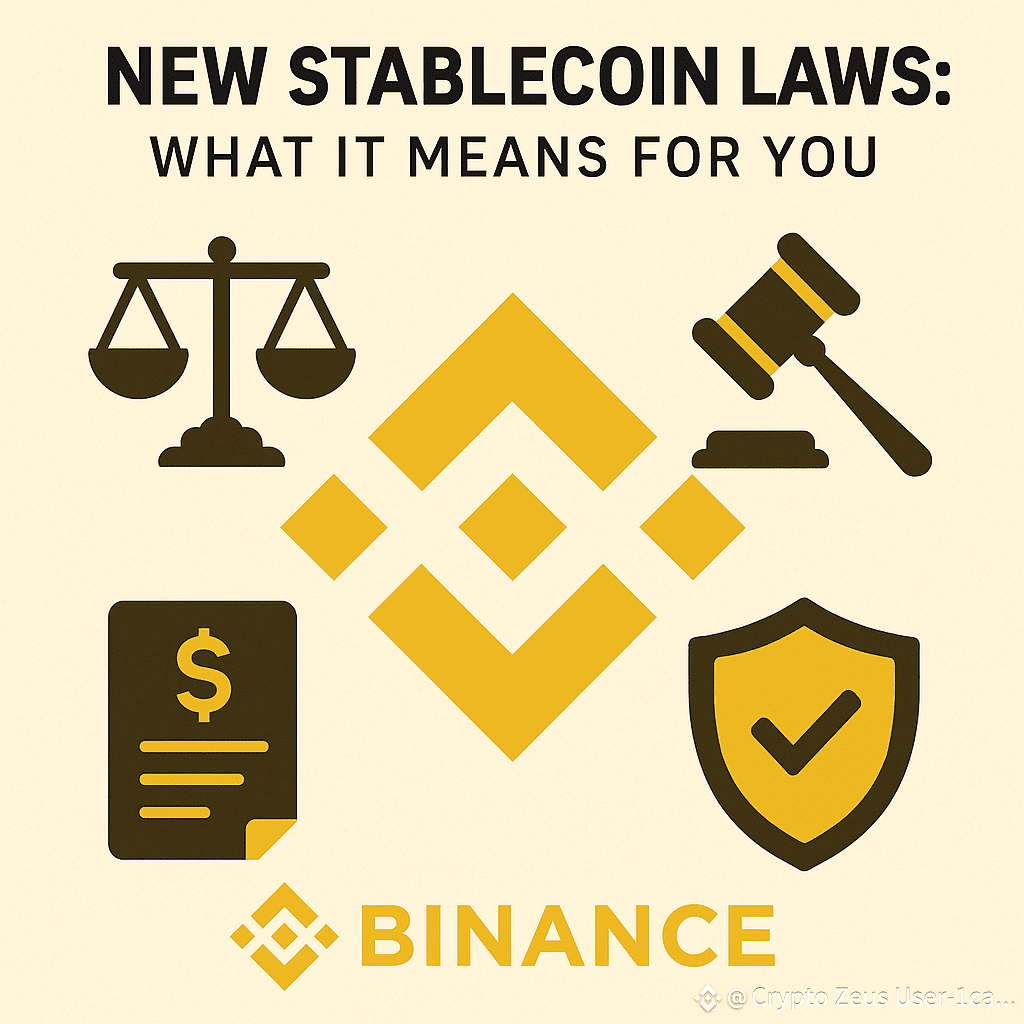🎯 Your New Advantage: What the Stablecoin Rules Mean
Full backing & transparency: Issuers must hold one-for-one reserves in cash or safe U.S. Treasury assets, publish monthly audits, and submit to regulatory oversight.
No interest from issuers: Stablecoin issuers cannot pay holders yields—but third-party platforms can offer rewards.
Strong consumer protections: Priority for stablecoin holders in insolvency, clear redemption policies, dispute resolution systems, and compliance with AML rules.
Whitelisted issuers only: Only licensed entities—banks, fintechs, or state-approved issuers—can issue compliant stablecoins. Others may be delisted or restricted.
5 Attractive, Actionable Tips for You
1. Choose Compliant Stablecoins to Minimize Risk ✅
Prioritize tokens like USDC backed by regulated entities that follow monthly audits and public transparency. Avoid non‑compliant coins such as Tether (USDT), which may face delisting in key markets like the U.S. and EU.
2. Hold Stablecoins with Clear Redemption Terms 🔄
Only keep coins with well-defined and timely redemption procedures so you can convert back to fiat quickly when needed. Steer clear of tokens with vague or delayed redemption policies.
3. Use Platforms That Follow AML/KYC Rules 🛡️
Trade or hold on platforms that enforce strong Know Your Customer (KYC) and Anti‑Money Laundering (AML) procedures. This ensures regulatory-compliant custody and makes your account harder to freeze or shut down unexpectedly.
4. Stay Informed on Evolving Compliance Landscapes 🌍
Regulations in other regions, like the EU’s MiCA, differ and may restrict access to some stablecoins. For example:
The EU mandates licenses for e‑money tokens and bans non‑compliant coins like USDT.
Hong Kong, Singapore, Japan, and others are also implementing strict reserve and audit regimes.
Understanding each country’s rules is essential, especially if you transact internationally.
5. Look for Third-Party Rewards (with Caution) 💡
Although issuers can’t offer interest, certain DeFi protocols or exchange staking programs still provide rewards. If you seek yield, choose regulated platforms with transparent operations and understandable risks.
Why These Rules Matter Now
The U.S. GENIUS Act became law on July 18, 2025, after passing the House and Senate with bipartisan support.
These laws aim to create a safer stablecoin ecosystem trusted by banks and large institutions, which could accelerate mainstream adoption and potentially lower transaction costs.
These laws are intended to make stablecoins more secure, transparent, and mainstream—but individual users still need to make smart choices. By favoring compliant tokens and platforms and staying informed on evolving rules, you can enjoy stablecoin utility while managing risk effectively.
Further Reading on Stablecoin Regulation
